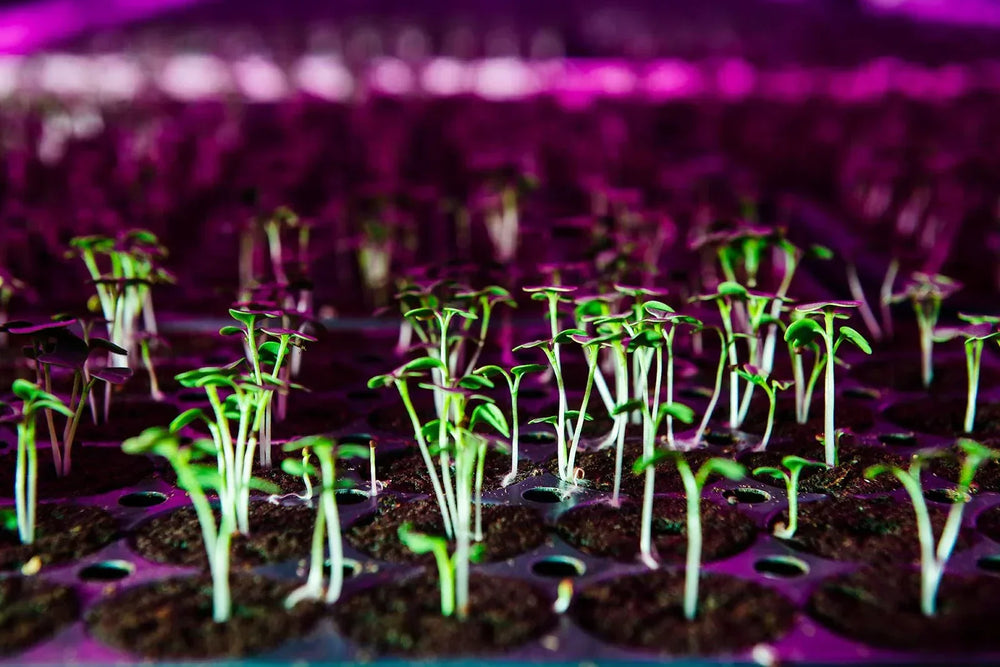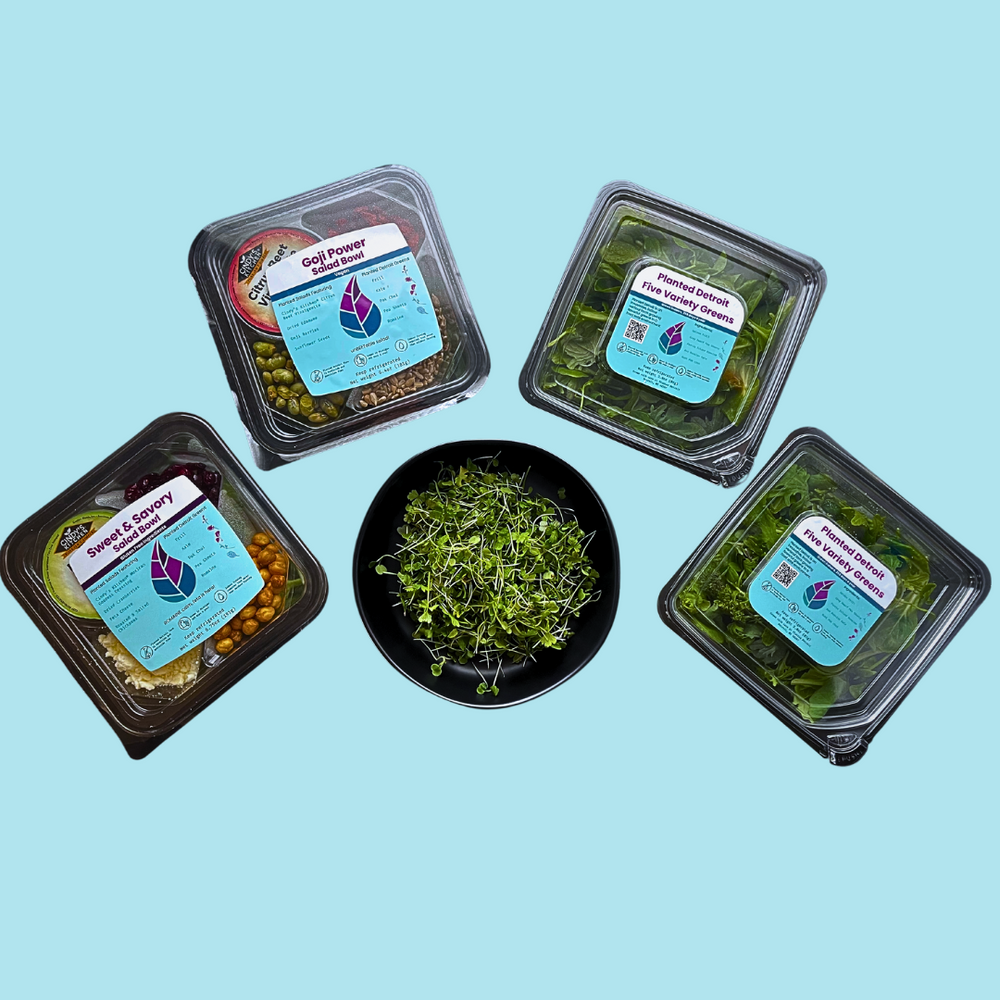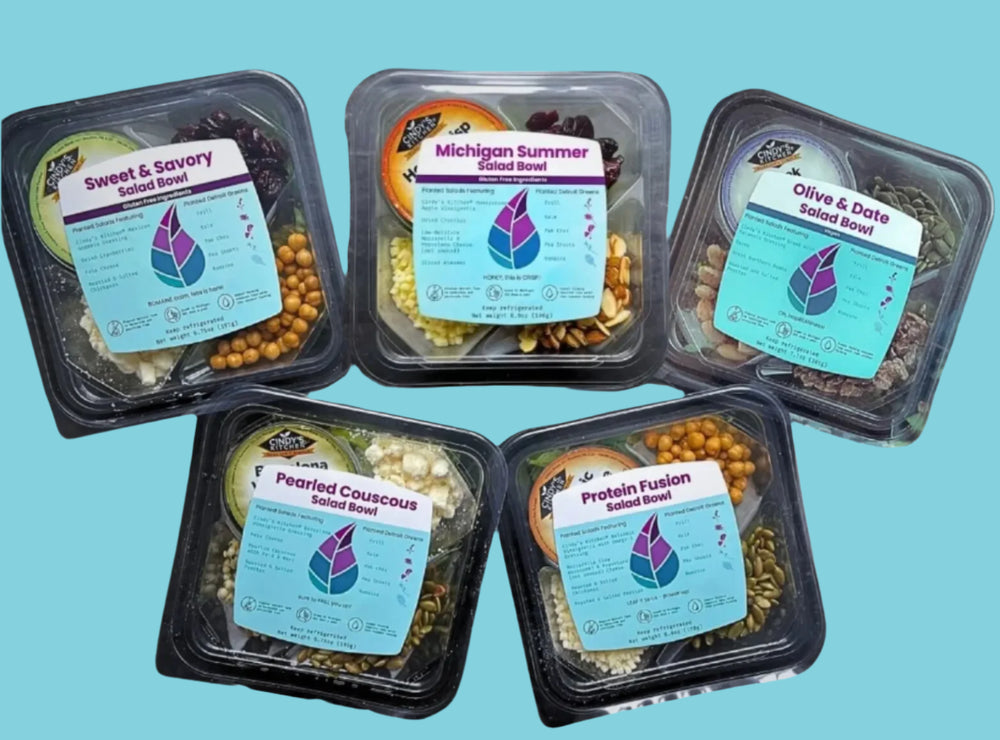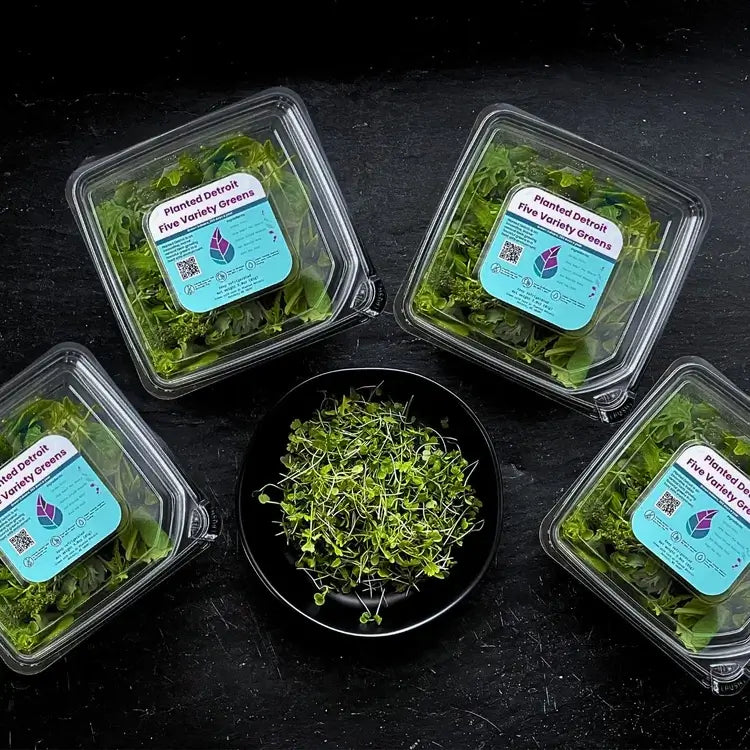
The Rise of Urban Farming
Worldwide, cities are beginning to adopt vertical farms, hydroponics, and rooftop gardens to solve the problems imposed by land scarcity and reduce the burden on conventional agriculture. Such methods enhance efficiency and effectiveness in terms of resources used and environmental impact, as well as access to healthier food.
Urban farming is changing the way we produce and consume food, thus playing an important role in sustainable agriculture. As cities grow, the demand for fresh and local produce increases. Hence, the need for novel solutions to farming is becoming a necessity rather than a luxury. Urban farming reduces the environmental effects of food production and also improves food security by creating proximity to the consumption of healthy food options.
Using state-of-the-art hydroponic technology with sustainable practices, Planted Detroit serves to showcase urban agriculture's ability to eliminate the disadvantages of traditional farming while aiming with great diligence to reduce environmental impact. We foster innovation through efficiency and community engagement and seek to revolutionize the growth and delivery of fresh food in urban areas.
The Need for Urban Agriculture
Why Cities Need Sustainable Farming Solutions
The traditional farming industry consumes resources from large land areas and has huge environmental costs. It needs intensive land use, uses excessive water, and causes greenhouse gas emissions through transportation and soil degradation. Urbanization leads to increasing strain on food supply chains, which makes it necessary to adopt innovative and sustainable farming techniques to manage food supply systems.
To do so, transport distances are reduced. The distance from farm to consumer should be reduced to save on costs and minimize greenhouse gas discharges into the atmosphere. Fresh produce can now be accessed directly from markets to customers. Local production inclusion can stimulate economic growth by creating more microenterprises and community initiatives.
Challenges of Traditional Farming in Urban Areas
Most cities are food deserts, deprived of fresh fruits and vegetables because of few grocery stores in their vicinity. Climate change causes more severe weather conditions and other new challenges that hamper traditional farming practices.
New forms of urban farming innovation are implemented through spaces like Planted Detroit, such as vertical farming and hydroponics, which maximize efficiency in productivity but minimize environmental impact. Advancing in these aspects will avoid possible reliance on increasingly limited traditional farmland and will provide all urban inhabitants with good and sustainable food.
Planted Detroit: Pioneering Urban Agriculture
The Largest Vertical Farm in Michigan
With vertical farming at its highest level of technology, we seek to change the face of urban agriculture. Hydroponically, the farm uses all lands available to enhance yields so that fresh produce can be grown all year round. Unlike traditional agriculturists, the controlled environment system allows light, temperature, and nutrient levels to be optimized for indoor plant growth to be even healthier.
Sustainability at the Core
Sustainability comes first on our list. Compared with the age-old traditional farming, our hydroponic system uses much less water. While the growing conditions are optimal for plants, light-emitting diode (LED) lights consume minimal energy. The farm also operates free of pesticides so that consumers receive safe, chemical-free produce.
In applying innovative technologies alongside environmentally sound practices, Planted Detroit provides a paradigm for future urban farms, one that clearly illustrates how high yield sustainability could be compatible in an urban setting.
Innovations in Urban Farming: How Planted Detroit Stands Out
Advanced Hydroponic Systems
Hydroponics forms the core of the innovative Planted Detroit farming strategy. This technique comprises growing plants without soil in nutrient-rich water, thus enabling the fine-tuning of plant nutrition and hydration. Faster growth, better yields, and year-round production free from seasonal fluctuations are made possible.
Planted Detroit's hydroponic system maximizes efficiency, conserving resources while extracting maximum produce. The absence of soil makes it possible to reduce the risks of contamination and pests, thus indirectly diminishing the use of chemical treatments.
Edible Flowers: A Unique Offering
Among Planted Detroit's many unique innovations is its line of edible flowers. The bright-colored, flavored flowers—Viola, Snapdragon, Dianthus, Calendula, Bachelor Button, and Begonia—add a gourmet touch to salads, fancy desserts, and cocktails. Edible flowers are appreciated not only for their beauty but also for their flavor and nutritional values, making them very popular with chefs and home cooks alike.

Custom Salad Bundles
Furthermore, we also provide tailor-made salad bundles for customers to mix and match fresh greens to their preferences. The method aims to enhance customer choice and incorporate high-quality and locally grown ingredients. By offering prearranged bundles, meal prep becomes easier, encouraging healthier choices for the high-speed urban life.
Planted Detroit’s Impact on the Local Community
Tackling Food Insecurity in Detroit
In Detroit, food insecurity is an ailment, where some neighborhoods grow devoid of fresh produce. On that front, Planted Detroit is filling the gap by providing nutritious greens to these communities. We are also partnering with some local food organizations to distribute the produce further into the hands that need it, thereby helping to combat food deserts.
Market Wagon: Expanding Accessibility
An online farmers' market is another way in which Planted Detroit spreads its wings. By offering home delivery every Wednesday, market goals ensure that their fresh, locally grown produce makes it to the farthest reach when they are at the peak of their freshness. Transformation of food distribution through Market Wagon, enables consumers to easily support local farmers while enjoying healthier meals.
Supporting Local Restaurants and Businesses

In collaboration with chefs and restaurants, Planted Detroit extends its reach beyond consumers as it produces nutrient-rich herbs and greens that can be used to spice up dishes made in local kitchens. With such local partnerships, Planted Detroit contributes to a vibrant food scene for the city while sustaining little businesses that depend on fresh, high-quality produce.
The Future of Urban Agriculture and Planted Detroit’s Role
Urban farming is expected to grow further, significantly through advances made in artificial intelligence, automating, and smart farming technologies. AI-based monitoring will optimize plant growth, while automation will reduce labor costs in cultivation and increase its efficiency.
This pioneering and forward-looking initiative makes Planted Detroit a front-runner in this rapidly evolving area. The farm intends to expand operations while improving technology and sustainability efforts towards maximizing impact in communities. As vertical farms scale up and integrate urban infrastructures, the potential openings widen beyond cities for sustainable local food production.
With the increase in demand for urban farming, Planted Detroit's blade-sharp focus on innovating has thrown it right into the heart of this ever-accelerating movement, setting the pace for future urban farms around the globe.
A Green Future for Cities
Urban farming has a positive impact on urban sustainability, food security, and community wellness. Planted Detroit shows that technology-driven agriculture can produce fresh and nutritious foods with the least environmental impact. In food production in cities, plants undergo hydroponics, edible flowers, and custom seed packs.
So, it raises local businesses, fights towards food insecurity, and incorporates sustainable practices, shaping an alternative future for urban agriculture. With an ever-growing population in cities, investment in creative solutions like Planted Detroit will make life easier, healthier, and more sustainable.
Shop our products now and join the movement for a greener tomorrow.



